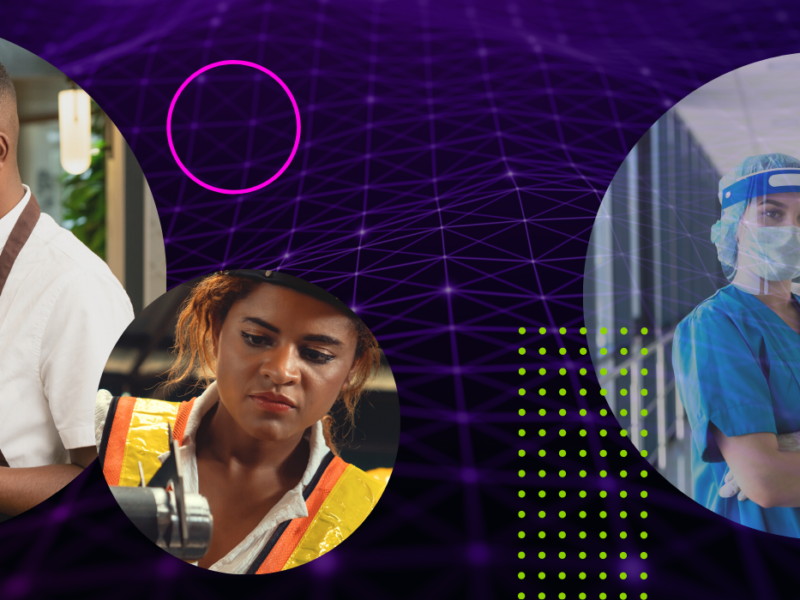Future Skills
Future skills – basic literacy, numeracy and socio-emotional skills – are important across all economic sectors and occupations. Figuring out who and how to address skills gaps is key to building an inclusive workforce with upward mobility.
Podcast
Season 2 | Episode 6
Skills for the Digital Economy
Technological change is affecting every sector, and these changes shift the roles and the skills in demand. Our guests share their perspectives on what needs...
Featuring: Linda Nazareth, Namir Anani, Rushmi Hasham, Nathalie Sanon
Blog
Shortage of skilled tradespeople and apprentices requires range of supports
Canada needs skilled tradespeople. According to the Canadian Apprenticeship Forum (CAF-FCA), over the five-year period from 2022 to 2026, an estimated 122,380 new journeypersons will...
Research
Planning When You Can’t Predict: Strategic Foresight and the Future of Work
This report introduces strategic foresight, a discipline that helps organizations and individuals think about and plan for the future in a context of radical uncertainty involving disruptive political, economic, social, technological, legal, and environmental changes.
Project
Calgary Regional WIL Secretariate and Portal
Work-integrated learning (WIL) gives people the chance to apply the skills they have learned in the classroom while gaining on-the-job experience and pathways to meaningful...
Blog
The future of work in the era of demographic, digital and green transitions
This is a translation. Please click here for the original blog post in French. The employment landscape is changing, facing three major transitions: demographic, digital...
Research
Jobs and skills in the transition to a net-zero economy: A foresight exercise
This report presents a foresight exercise that models the jobs and skills that would be required in a net-zero economy across a set of distinct futures.
Research
Digital Skills for a Future-Ready World
We know that digital skills are essential for a strong post-pandemic recovery. But we don’t have a clear picture of the exact digital skills that Canadian employers are looking for.
We need to understand these gaps so we can respond with the right tools and training.
Blog
Indigenous women thrive in northern Manitoba tech training program
When Brenda Bignell first enrolled in a program in The Pas, Manitoba to improve her tech skills, she says she didn’t even know where to...
Blog
Workforce development strategy needed to address skills mismatch
It’s unfortunate to have people out of work in Ontario while many employers cannot find qualified candidates to fill job vacancies. Labour shortages are one...










